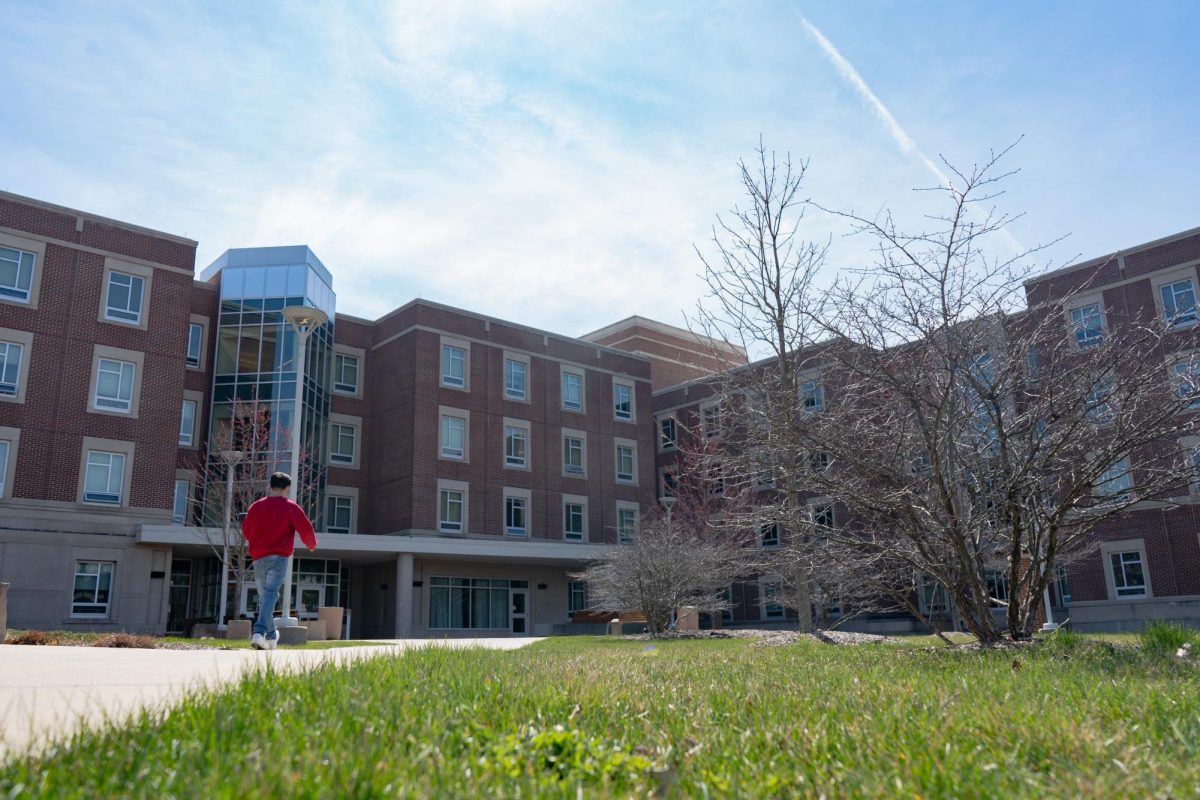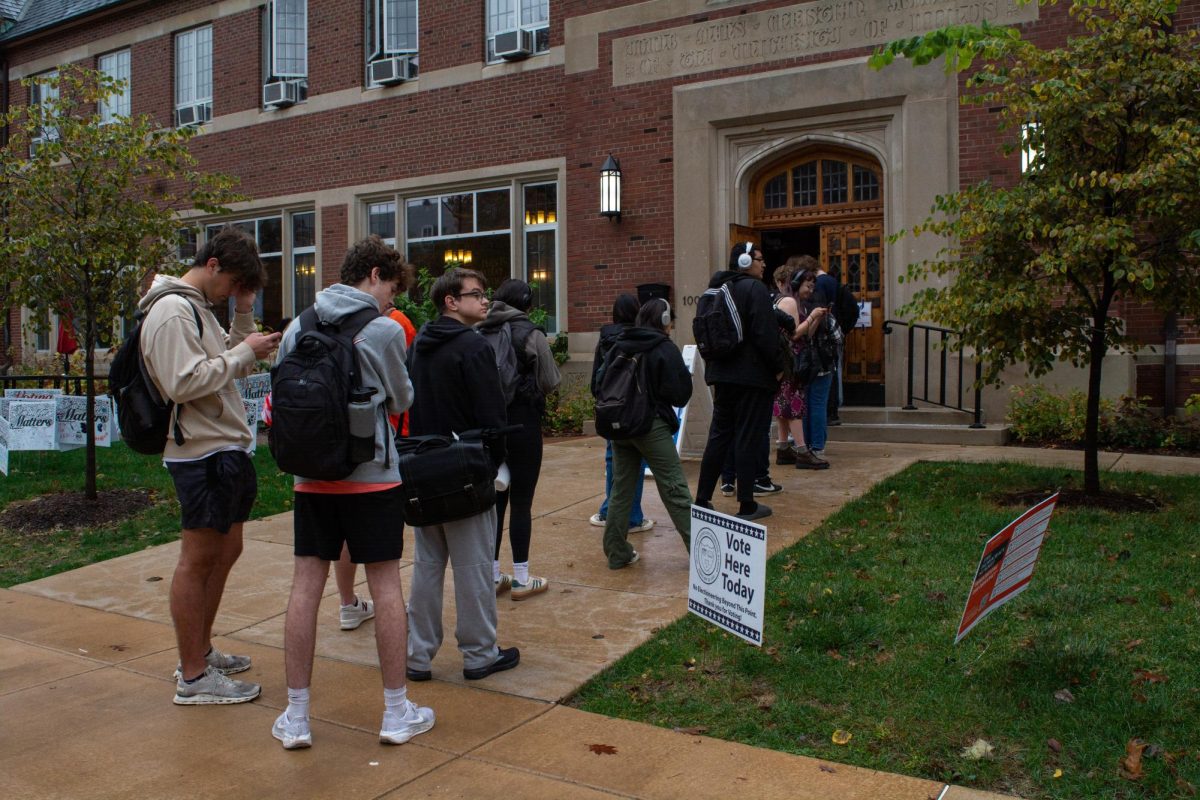** Sources in this story have elected to remain anonymous for safety reasons.**
Resident advisers were informed on July 26 by University Housing they might temporarily be rooming with their freshman residents as a last-ditch effort to combat a housing shortage caused by admissions uncertainties.
According to Deputy Associate Chancellor Allison Vance via email, all temporary roommates for RAs moved out by Sept. 18. RAs expressed frustration because they were informed of possible roommate assignments just 11 days before their Aug. 6 move-in.
An RA in AHS, who elected to remain anonymous, said she found out she was getting a roommate — not from University channels — but from a friend who told her to check her housing portal.
She said it was difficult to set boundaries with her new roommate and the situation took a toll on her personal life.
Get The Daily Illini in your inbox!
“It’s a conflict of interest … because I’m their RA and they’re my resident,” she said. “They probably felt uncomfortable knowing that they had someone who’s seen as their supervisor in their room.”
Despite enjoying connecting with her residents, she said being an RA should not come at the cost of her well-being.
“I still have my own privacy concerns, so it was kind of hard to navigate them,” she added. “I do like making and creating spaces where everyone feels like they belong, but never at my expense.”
Although RAs were offered an additional $125 per month if they received a roommate, the anonymous RA said University Housing exploited the financial dependence many RAs have on their position to provide free room and board.
“Being an RA is hard, and I feel like the attitude that housing has towards RAs has been (that) if you’re not willing to do the job, we’ll find someone else who is because they know that people are in financial situations where they have to choose to be an RA,” she said.
The University took several steps prior to placing RAs with roommates, including converting lounges to rooms and moving residents with a housing contract to private apartments.
“Our RAs (provide) critical student support,” said Chris Axtman-Barker, associate director of communications and marketing at University Housing. “We really didn’t want to exercise that option, and I think you can see we were true to that by removing those roommates as quickly as we possibly could.”
He said several RAs left their positions — citing the existence of a roommate — but that it was not necessarily the only cause of resignation.
“We had more RAs leaving us, for just as many other reasons — it was really a typical amount of RA turnover than happens at that time of the year,” Axtman-Barker said.
A sophomore RA, who also asked to remain anonymous, said the recent Service Employees International Union Local 73 strike created additional stress for both RAs and residents. The strike, which was suspended on Oct. 1 after SEIU and the University reached a tentative agreement, resulted in long lines and limited options at dining halls, according to students.
“It’s just extremely frustrating … the resources here at the University just (are) not being implemented properly,” he said. “Students are paying a lot of money for housing and food plans, and then it’s not being put to good use overall.”
He was not assigned a temporary roommate, but he said he felt the need to speak up and advocate for RAs. He said the University should establish an RA council to give them a voice and ensure the council is accessible and equitable.
According to Axtman-Barker, although an RA council does not currently exist, RAs who fulfill the dual role of being employees and residents can provide feedback through hall councils and a resident advisory group that meets with the Director of University Housing.
“Some RAs asked if a specific RA advisory group could be formed, and I believe those folks were directed to join the resident advisory group that already exists,” Axtman-Barker said. “Our RAs are in a unique position because they’re both staff members and residents in our communities.”
The University’s rising profile in U.S. World and News rankings, coupled with a trend of record-breaking freshman class sizes, indicates that fulfilling the housing needs of students may remain a challenge for future years.
Axtman-Barker said over the past few years, University Housing has noticed an uptick in demand.
“We have certainly seen increased demand in residents wanting to reserve space to return to University Housing, as well as from first-year students preferring University Housing as an option,” Axtman-Barker said.
The University will continue to enforce the one-year on-campus requirement for first-time students. The policy is correlated with higher student success rates, he said.
“From our own studies, we have seen that students are much more likely to graduate and … in a shorter length of time when they do spend that first year in certified housing,” Axtman-Barker said. “So that makes a big difference for student success rates and saves students a lot of money, and both of those things are very important to the University.”
As for preventing future dorm shortages, Axtman-Barker said University Housing is working with stakeholders to curb the size of incoming classes.
“We are having conversations as University units between the Chancellor’s office, Enrollment Management, University Housing, Student Affairs and academic partners on how we can make sure this doesn’t happen next year — that we don’t have another unexpectedly large class,” Axtman-Barker said.
Still, some RAs said they feel jilted by the actions of the University.
“I just feel like I am not valued as an employee, and for that reason, I don’t know if I’m (going to) return,” the anonymous RA with the roommate said.









